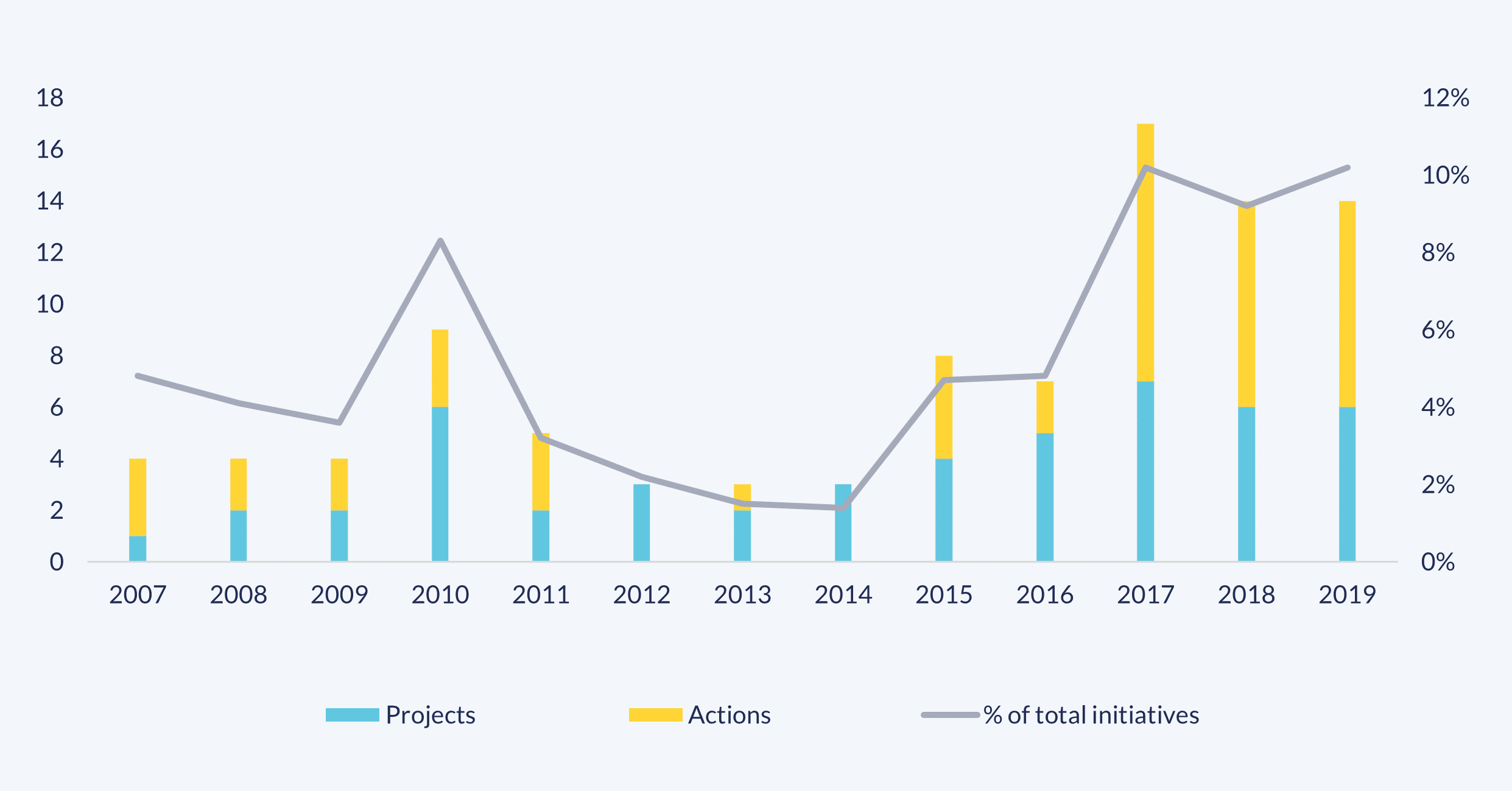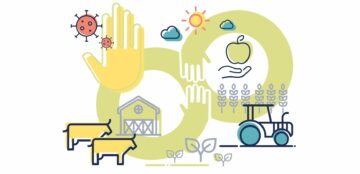Disaster management to build a more resilient region to face the COVID-19 crisis

Initiatives for the exchange of national capacities, knowledge and experiences in this sector have increased within the framework of the Triangular Cooperation of Ibero-America.
National disaster risk management systems and experienced organizations have much to contribute to develop answers to face the new coronavirus crisis, as they are prepared to analyze risk in a multidimensional manner, and to identify the different sectors’ weaknesses and capacities (Burón, 2020). Their accumulated experience strengthens resilience and crisis preparedness.
WHO itself, in its COVID-19 strategy (2020), states that “to provide coordinated management of COVID-19 preparedness and response, national public health emergency management mechanisms should be activated” adding that “in certain contexts, this may be through the support of National Disaster Management or other crisis management authorities.”
In line with the above, the analysis of the World Bank (2020) regarding the experience of East Asia and Pacific in response to COVID-19 identifies three major inter-governmental coordination modalities: direct leadership of the highest government authority, of the Ministry of Health or of the National Disaster Management System (SNGD by its Spanish acronym). While each of these have comparative advantages, the report reveals that responses led or coordinated by the SNDG can lead to the rapid adjustment of preparedness measures that consider different types of risks.
In fact, the importance of these experiences is key, not only in the first phase, coinciding with the necessary attention to the emergency, but also in later stages to face recovery, and even to prevent and anticipate future pandemics. In addition, natural disasters risks are combined with the health emergency, a complexity that must be addressed by focusing on people, especially on the most vulnerable groups. Hurricanes Eta and Iota’s devastating hit on the Central-American and Caribbean region in November 2020, in the midst of the COVID-19 crisis, illustrates the aforementioned. In line with this, the Red Cross EU Office (2020) alerts that, in the current context, good disaster risk governance is more important than ever to ensure no one is left behind, as the 2030 Agenda for Sustainable Development claims.
In this context, it is worth stressing the increasing importance that Triangular Cooperation initiatives to strengthen capacities associated with Disaster management have had. Indeed, and as suggested in the following graph, the number of triangular actions and projects dedicated to Disaster management has gained ground in recent years and has increased both in relative and in absolute terms, especially from 2014 to 2019, period in which these kind of initiatives quadrupled. In fact, in 2019, 8 actions and 6 projects focused on Disaster management, corresponding to almost the tenth part of the total initiatives that were under execution during that year.
Graph. Evolution of projects and actions in the Disaster management sector. 2007-2019. In units and as a percentage of total initiatives under execution each year

Source: SEGIB based on Agencies and Directorates-General for Cooperation
In order take a closer look at the details of the region’s TC in Disaster management, some of 2019’s projects and actions implemented in this sector will be described below. On the one hand, actions in the framework of Kizuna Project must be highlighted, an initiative between Japan and Chile that since 2015 has been tackling issues such as tsunamis, earthquakes, and forest fires through courses, seminars, master’s degrees and diploma courses, in order to build a more resilient region, and to improve the population’s preparedness, response times and reconstruction processes, among other aspects. Furthermore, Kizuna Project especially focuses on the creation of a regional network on disaster risk reduction. (AGCID, 2020)
As for 2019’s projects, partnerships are much diverse and so are the topics addressed. Brazil and OAS act as providers in two of these projects, in the framework of the Brazilian Cooperation Fund at OAS (FBC/OEA by its Spanish acronym): one is related to the rescue of people and the other one to urban fires. In addition, the German Regional Fund for Triangular Cooperation in Latin-America and the Caribbean supports another two projects. Specifically, one of these seeks to strengthen the Dominican Republic’s Early Warning System (EWS), especially in terms of inter-institutional communication and warnings issuance in case of hydrometeorological events.
This project illustrates how, in recent years and through Triangular Cooperation, countries have shared capacities in Disaster management that may have also strengthened our region’s response to the COVID-19 pandemic, since many key aspects such as intersectoral coordination and adequate communication mechanisms are common to natural disasters and health emergencies.
October 2021
*
Source: SEGIB based on Burón (2020), Red Cross EU Office (2020), WHO (2020), World Bank (2020) and AGCID website (2020).
Photograph: Jonathan Ford on Unsplash

